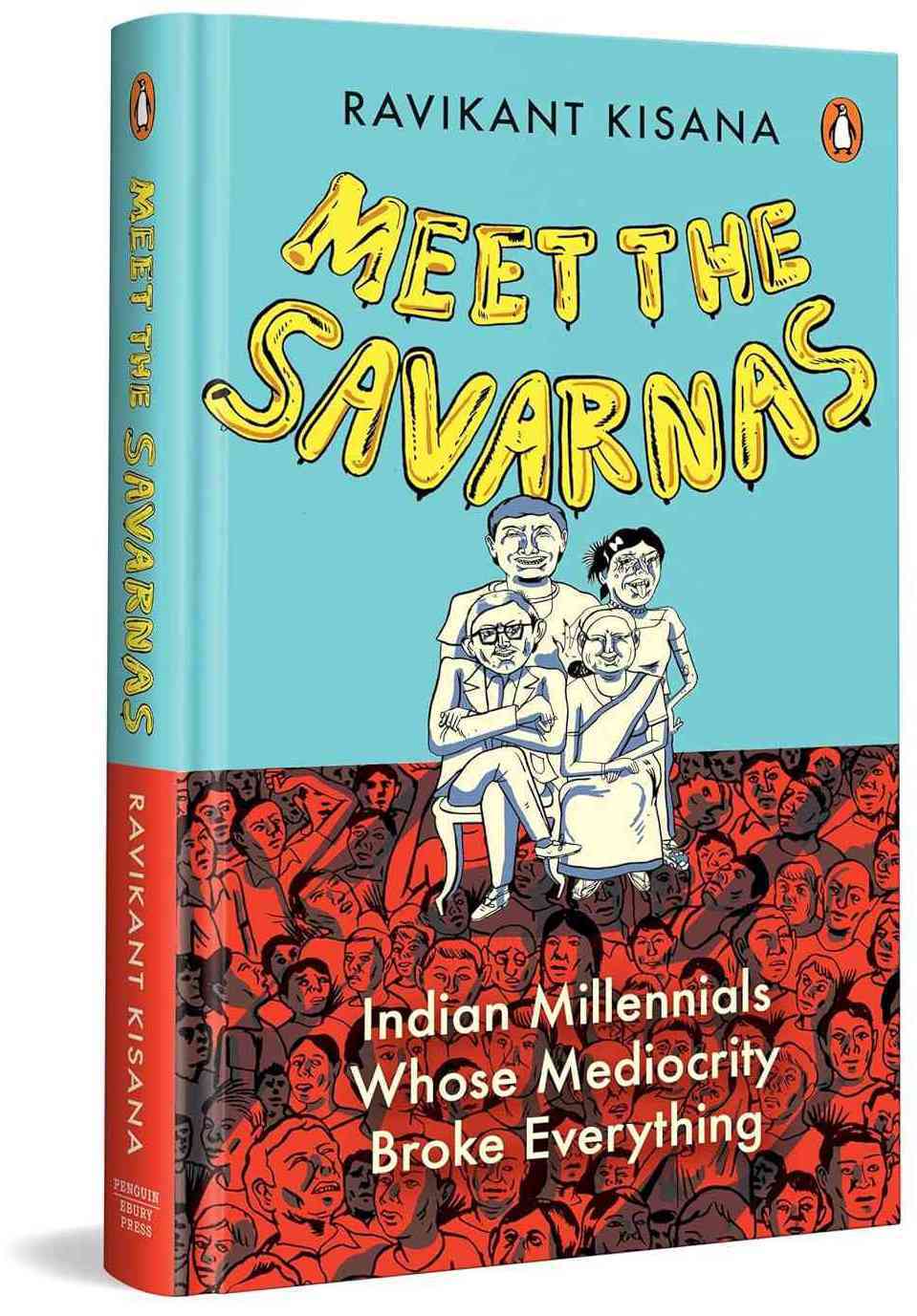Ravikant Kisana begins his Meet the Savarnas: Indian Millennials Whose Mediocrity Broke Everything with a gutting dedication: “For all the versions and factions of me that had to die for me to become the person who could write this work. You were all good and valid.” It is a line that doesn’t ask for sympathy but demands recognition – recognition of the loss, the fragmentation, the slow violence of caste that eats a person from within. What unfolds is an unflinching account of the silent, banal, everyday violences of caste, those that do not make headlines but form the bedrock of our society. The caste system is not a relic of the past; it is the design of the present. Kisana names it, locates it, and most importantly, positions himself within it. This is not a detached read; it tears into the system.
The silence of savarnas
With this work, Kisana joins the brilliant young anti-caste scholars like Akhil Kang, Ujithra Ponniah and Sumeet Samos, among others, who have taken up the task of turning the mirror towards caste-oppressors – the oppressed are no longer to be seen as a spectacle, a case study, or a data point. These writers have not merely written, they have endured. Reading is not only an intellectual exercise. It is a political risk. It comes at personal cost: of alienation, social fracture, and exile.
Moreover, Kisana patiently dismantles the liberal affect that many savarnas have learned to wear like a second skin – the vocabulary of equality, the aesthetics of dissent, the curated politics of ally-ship. He unmasks the carefully constructed identities of “progressive” savarnas who condemn caste in theory but continue to live, love, marry, and accumulate wealth within its architecture. In chapter after chapter, he shows how caste is not always about cruelty in its most visible forms. Sometimes it is about silence. About access. About never having to ask. About always being assumed to belong.
This book is written exactly for that audience. For those who squirm when caste becomes too close, too real, too bloody. Kisana’s book offers no reprieve from this discomfort. It does not end in redemption. He drags the reader, especially the savarna reader and holds their face up to the mirror of their own making. This book does not speak about caste; it speaks to caste power.
Kisana, humbly enough, calls this book an “introduction.” An introduction to the savarnas, about themselves. But to me, it reads as much more than that. It is not just an introduction but rather an invitation – a dangerous and uncomfortable one. It is a call to not turn their gaze (once again) towards oppressed bodies so often mined for savarna scholarship but toward their own homes, families, friendships, desires, fears, and lies.
Subjects of scrutiny
Meet the Savarnas is written in a decolonial tongue – clear, sharp, accessible, and entirely uninterested in catering to the norms of academic writing. And thus, a recurring critique of Meet the Savarnas has been its apparent lack of “data.” That it is not “substantially backed by facts.” That it lacks “rigour.” One could almost predict these reactions the moment the book hit the shelves. It is the savarna discomfort with rage, the refusal to believe that experience, living memory, and introspection grounded in caste betrayal can be valid knowledge. What is perhaps most telling is that had a savarna author written this same book in the same tone and style, it would have been celebrated as a brave experiment in “narrative nonfiction.” Or as a stunning example of creative autoethnography.
Kisana addresses this obsession with numbers himself. He writes: “After a point, numbers lose their potential for shock or horror. What does 200 million mean? What does 500 million mean? What does living on Rs 250 per day mean? What does raising children on Rs 150 per day mean? Does living on Rs 100 per day make you poor? What about Rs 47 per day?” In those lines, Kisana points to a deep apathy baked into data work in India, especially when it concerns the oppressed. Statistics have long been used to silence, not amplify. They have turned lives into digits, pain into metrics. And once reduced to numbers, the lives of the oppressed are free to be forgotten. Kisana refuses to hand the reader a graph to distance themselves from discomfort.
The only limitation I felt in this otherwise searing work is Kisana’s focus on the Brahmin–Baniya axis when discussing the savarna. While these castes undoubtedly dominate institutions of knowledge, wealth, and cultural production and are rightly held accountable for their performance of merit and detachment from caste privilege, the near absence of the Kshatriya is hard to ignore. Historically and in the present, the Kshatriya caste groups have been active agents of violence, particularly gendered and sexual violence, in both rural and urban contexts. Their caste masculinity thrives on domination, of land, of women, of oppressed-caste bodies and their role in reinforcing savarna supremacy cannot be sidelined.
And yet, despite this, Meet the Savarnas remains a vital book. It forces savarnas to sit with themselves, not as allies, but as subjects of scrutiny. It demands that they confront not only the caste system “out there,” but the caste within: within their homes, friendships, language, desire, and self-image. This is not a book you underline and shelve. It is a book that leaves you exposed, agitated, and implicated. It is a book that dares to speak. And for that, Meet the Savarnas will remain, for me, not only an answer to “Can the subaltern speak?” but also a challenge to those who are still choosing not to listen.
Also watch:
‘Bhadraloks think they are enlightened but Bengal among most casteist states’: A conversation between Ravikant Kisana and Shoaib Daniyal
 Meet the Savarnas: Indian Millennials Whose Mediocrity Broke Everything, Ravikant Kisana, Penguin Random House India. Meet the Savarnas: Indian Millennials Whose Mediocrity Broke Everything, Ravikant Kisana, Penguin Random House India. |